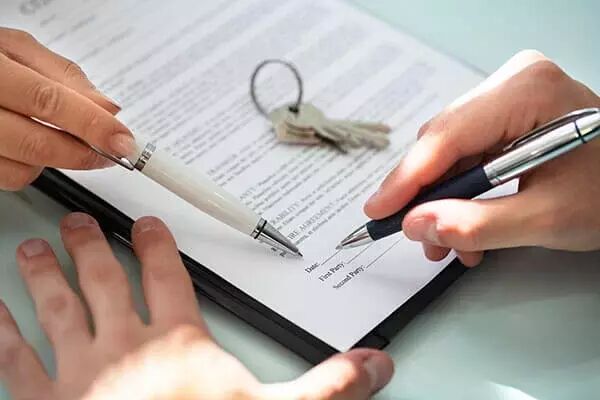Unknown Facts About Conveyancer
Unknown Facts About Conveyancer
Blog Article
Little Known Facts About Conveyancer.
Table of ContentsConveyancer for DummiesFascination About ConveyancerThe Buzz on ConveyancerIndicators on Conveyancer You Need To Know
The prices are levied in conformity with the Legislation Culture's tariff guidelines. A Conveyancer needs to: In any way times protect the interest of his/her customers and based on the signed Sale Arrangement; Keep all celebrations educated of the progress on their deal and educate both parties of the conveyancing treatment and processes; Encourage the parties on the conditions of the Sale Contract, especially concerning suspensive problems and obligations; Encourage the vendor on the termination of his bond, any type of penalties, notice periods and various other management fees which may influence the settlement figure; Acquire the vendor's written directions prior to he/she, as the Conveyancer, concerns any kind of warranties in respect of the deal; Do whatever in his/her power to sign up the purchase on or as close as feasible to the date concurred to in the Sale Agreement; Recommend both celebrations on their responsibilities in terms of their Sale Arrangement, so regarding make certain that the transfer is not delayed needlessly; Consult with both parties to sign the appropriate paperwork associating with the deal Prepare the actions for lodgement with the utmost care, so as to ensure that they reduce the danger of a being rejected of the documents by the relevant Acts Registry; Inform both parties of the transfer on the date of enrollment; Account to both events for finances associating with the transaction within 2/ three days following effective registration of the deal in the suitable Acts Registry.It belongs to your conveyancer's task to coordinate a negotiation time with the opposite's lawful agent, during which time the home is officially negotiated and all documentation and cheques are turned over. Upon settlement, your conveyancer will make call with you and/or your genuine estate representative to verify settlement and enable secrets to be handed over.
Nobody wants to experience a stressful or frustrating circumstance when you should simply be excited for your following step. This is where conveyancing can help the procedure to move along efficiently. The role of a residential or commercial property conveyancer is to handle this legal procedure of moving the ownership and title of a property from the vendor to the buyer.
Attorneys commonly have a range of locations they have knowledge in, with conveyancing probably being a field they do not practise in often. The benefit of making use of a home conveyancer is that property purchases are what they bring out consistently. They understand the procedure throughout and are extremely acquainted with it, ensuring all pertinent paperwork is supplied and the procedure is accurate and prompt.
Some Of Conveyancer

However, picking a choice for no other reason than it's less costly might cause extra issues in the long-term with an unreliable or read review inefficient solution. Look for a dealt with cost service so you understand specifically what the process will certainly cost you and whether it matches your scheduled budget plan. Referrals from pals or family members, or reading on the internet reviews can likewise work in discovering a seasoned and effective conveyancer.

Conveyancing solicitors and licensed conveyancers both manage the conveyancing procedure. A property solicitor will generally tend to have experience in various other legal areas too.

Conveyancer - Questions
They communicate with different parties, including the estate representative, vendor's conveyancer, and neighborhood authorities. The conveyancing process starts once a deal on a residential property is accepted.
The buyer's solicitor will certainly make certain the purchaser is informed about the documentation and lawful obligations. This stage entails clarifying the conveyancing costs and describing the building info form. Being notified can stop unforeseen problems as the procedure unravels. Residential or commercial property searches offer a function in the conveyancing process. The customer's lawyer arranges these checks to reveal potential issues with the building.
Local authorities might offer understanding into close-by future developments that may affect the home's value. Mortgage loan providers commonly need details searches prior to launching a home loan offer. While some searches might seem optional, omitting them might lead to unanticipated issues. A building's title deeds stand for a historic document of its ownership.
Some Ideas on Conveyancer You Should Know
When a deal is accepted, the seller's lawyer prepares a draft agreement. This contract pack includes crucial records like the property details kind, the leasehold info type, and the installations and components form. The purchaser's conveyancer examines these to make certain all the paperwork follows expectations. At this stage, home law factors to consider occur, from common access legal rights to what fixtures include the look at more info residential or commercial property.
Conversely, if the seller withdraws, they deal with charges. Both events concur on a conclusion date complying with the exchange - Conveyancer. On now, the buyer pays the remaining equilibrium, and the seller moves the residential or commercial property secrets. There's usually a gap between exchange and completion for purchasers to settle details or make plans.
Report this page